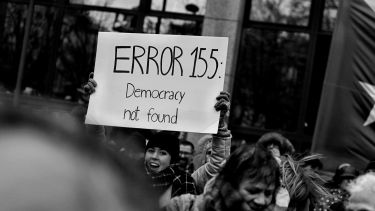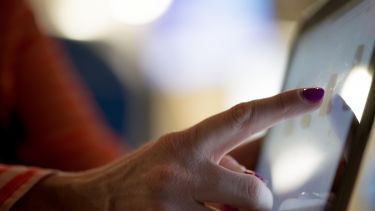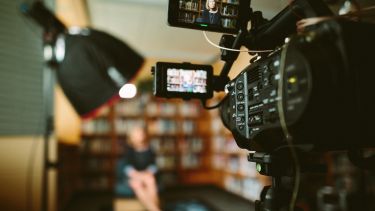How is digital technology affecting democracy?
Dr Kate Dommett’s research looks at how digital tools are affecting the relationship between people and politicians, and how digital technology has had a fundamental impact on democratic politics.

Digital technology has had a fundamental impact on democratic politics. In a few short years, our expectations for how elections are run, how campaigning works online, and on how we can (and should) communicate with one another have changed. Global technology firms have provided new infrastructure for public debate and engagement, the Internet has made information more freely available and accessible, and people can now have a say in ways easier than ever before. And yet, whilst increasingly familiar, many questions remain about how these new resources should be mobilised within a democracy, what implications they have for democratic debate, and how we may wish to regulate and respond.
Research Questions
Studying the impact of digital technology on contemporary politics, Dr Kate Dommett’s research looks at how digital tools are affecting the relationship between people and politicians. Focused on election campaigning, her research asks:
- How is digital technology being used in elections?
- What democratic goals should inform the use and regulation of digital technology? And how is the ‘problem’ technology poses for democracy currently understood by different audiences?
- How should digital campaigning be regulated? And what actions should the government, companies, individuals and campaigners take?
- What does good digital citizenship look like, and how can it be advanced?
Research Aims:
To generate more detailed understanding of how digital technology is being used at elections
Despite much coverage of the Cambridge Analytica scandal and widespread claims about the pervasiveness and effectiveness of digital campaigning, we actually know very little about how digital campaigning tools are used, and what they achieve. This research aims to challenge a number of prevalent myths about digital campaigning tools by categorising, monitoring and developing our theoretical understanding of the form of political campaigning
To advance debate about the relationship between democracy and technology
Whilst it is often claimed that digital technology is having a negative impact on democracy, we’re often far from precise about what democratic values are being undermined, and how they can be protected. This research aims to map the ‘problem’ caused by digital technology and outline the different democratic goals that digital technology can promote.
Evaluate and propose regulatory (and other) responses to digital technology is politics
Calls for the regulation of political advertising, misinformation, tech companies, campaigners and much besides have become a frequent part of the debate around digital technology. However, these calls are often made without much precision or co-ordination. This project aims to clarify the debate around regulation and propose practical responses to problematic practices online.
Research Activities
Special Advisor to the House of Lords Democracy and Digital Technology Committee
Kate is currently working as a Special Advisor in the House of Lords, where are a group of peers have been set up to investigate the impact of digital technology on democratic politics. The Committee is considering both the positive and negative impacts of tech, and the actions that need to be taken to promote its positive role. Kate’s role on the Committee includes recommending witnesses and questions, conducting research to support the Committees work, and helping to draft the final report. This role is directly informing her work on policy responses to digital technology.
Teaching on Political Advertising on Facebook
As part of the first year undergraduate course, Kate leads a ‘research challenge’ where students have the opportunity to conduct research on a cutting edge political issue. Kate’s challenge allows students to explore the use of political advertising on Facebook. Using the Facebook ad archive, studying the contents of their own Facebook page, and reading material on how Facebook is being used, students are given 4 hours to learn about the practices of Facebook advertising, and then apply this to design their own online advertising campaign.
Media work
- BBC - Who will regulate digital political ads? Kate Dommett is featured being interviewed by BBC's Amol Rajan.
- Should Twitter, Google and Facebook be allowed to alter the rules of campaigning overnight? Kate writes for openDemocracy.
- WHY AM I SEEING THIS AD: regulating campaigns in the digital age Kate Dommett talks about why current electoral rules aren’t up to the job and what we need to do to fix them on the Reasons to be Cheerful with Ed Miliband and Geoff Lloyd.
- A tale of two platforms Kate talks about how UK political parties could use or misuse social media as they launch their general election campaigns on the Chips with Everything podcast.






